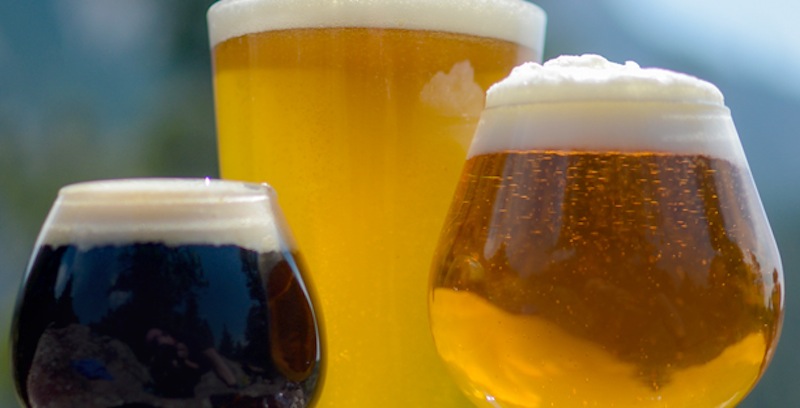
April 29, 2016 6 pm, Opening Day at the Museum!
WHAT: “Bottles, Barrels & Brews: McHenry County on Tap,” The McHenry County Historical Society & Museum is hosting a breweries and taverns exhibit, spanning the 1860s through the repeal of Prohibition in 1933.
WHEN: 6 to 9 p.m. Friday, April 29. Exhibit runs through December.
WHERE: McHenry County Historical Society Museum, 6422 Main St., Union.
COST: Free admission to the opening reception, fee for craft beer tastings from local craft brewers Chain O’Lakes Brewing Co., McHenry, Crystal Lake Brewing Co., Scorched Earth Brewing Co. of Algonquin and Emmett’s Brewing Co. in West Dundee for those 21 and older. Beer tasting package, $15 includes souvenir pint glass and five tasting tickets. Individual tastings, $3 per ticket. All proceeds benefit the McHenry County Historical Society.
INFORMATION: 815-923-2267 or visit mchenrycountyhistory.org.
UNION – The McHenry County Historical Society Museum will mark its 40th year Friday, April 29, with a celebration of an American staple: Beer.
To mark the resurgence of independent craft breweries to the county, the society has created an exhibit that chronicles the history of brewing and taverns here. The exhibit will feature current local craft breweries, as well as historic breweries from the county’s past. “Bottles, Barrels & Brews: McHenry County on Tap” features historic photographs, old beer bottles, beer crates, barrels and other items related to McHenry County’s historic breweries – including a re-created speakeasy dubbed the Bubbling Over.
Cole Peterson, leader of the Citizen League of McHenry County during the Prohibition era, knew all too well about the goings on inside the Bubbling Over roadhouse. Located on the north side of Route 14 (then Route 19), just east of the intersection with Dunham Road, it was the most infamous speakeasy in McHenry County during Prohibition – notorious for its availability of liquor and beer, and frequented by “sporting” women and scandalous jazz music.
Peterson, a Woodstock dairy farmer portrayed during the opening by local historian Craig Pfannkuche, strongly favors Prohibition. He and other League members raided and destroyed many illegal stills. That prompted a retaliatory bomb blast in 1928 by what the Sycamore “True Republican” characterized as “gangland hirelings from Chicago.” According to news accounts, the blast “tore away most of the front” of the Peterson farmhouse, located just west of the Pioneer Cemetery on South Street, and “broke windows for several blocks around.”
Peterson, who was safely in the rear of the house at the time, pledged to redouble his efforts. And that will include a visit to the Bubbling Over during the evening of the McHenry County Historical Society Museum’s grand opening from 6 to 9 p.m. Winning over converts to his cause undoubtedly will be a tall order.
The evening will feature a mix-and-mingle open house featuring local craft beer tastings, live music with Tony Amber, snacks, a beer bonanza raffle basket and several new exhibits. Learn about Jacob C. Bickler’s McHenry House. Prior to 1920, the McHenry House hotel was a major outlet for the wares of the McHenry Brewery located just west on Pearl Street.
The building currently standing on the northwest corner of Pearl Street and Riverside Drive in McHenry was built in 1838. The core of the building was originally erected about where McHenry’s Veterans Park is located. For a short time before Woodstock became the county seat, the building served as the county’s first courthouse. Once the county seat was relocated to Woodstock (Centerville) in 1844, the building was moved to the west side of the original natural ford of the Fox River. Horace Long, the new owner, remodeled the building into a hotel in the 1860s and called it the “Mansion House.”
It is probable that the bar at the McHenry House continued to serve liquor throughout the 1920s based on the fact that Bickler was arrested for Prohibition violations by federal officials on Sept. 3, 1927, along with numerous other individuals. The charges against Bickler were later dismissed after the prosecution’s case was tainted by the disappearance of Alford Pouse, then McHenry County state’s attorney. Bickler retired from managing the McHenry House in 1939. The building still functions as a tavern under the name of the Town Club.
Other items of interest include: Local craft brewery memorabilia and souvenirs, an interactive smell station with brewing ingredients and family friendly root beer section where kids can try a bottle-capper and learn about the history of root beer. Ingredients in early root beers – as well as today – included sarsaparilla, sassafras root, vanilla beans and hops.
For additional information, visit www.gothistory.org.
The Colorado-based Brewers Association trade group that represents small and independent craft brewers, credited innovation with helping boost popularity of the product. While traditional ingredients like malted barley are used, it is the non-traditional elements – from nuts to nutmeg – that give craft beers their distinctive flavor and have allowed those brewers to capture 12 percent of the American market.
In 2015, craft brewers produced 24 million barrels, up 12.8 percent from the previous year. It’s $22.3 billion in sales, marked a 15-percent increase. Illinois’ 157 craft breweries produced 595,237 barrels of product in 2015, 13th best in the country, but its nearly $2.3 million in economic impact ranked it sixth nationwide.
“With a strong presence across the 50 states and the District of Columbia, craft breweries are a vibrant and flourishing economic force at the local, state and national level,” said association economist Bart Watson in a written statement. “As consumers continue to demand a wide range of high quality, full-flavored beers, small and independent craft brewers are meeting this growing demand with innovative offerings, creating high levels of economic value in the process.”
American Craft Beer Week is May 16-27.